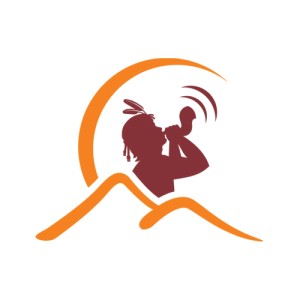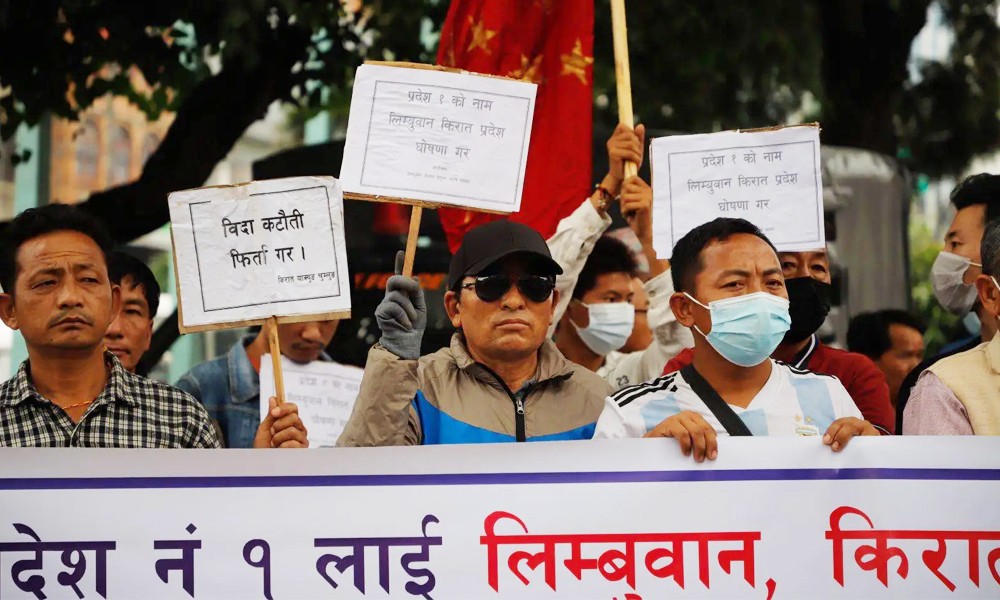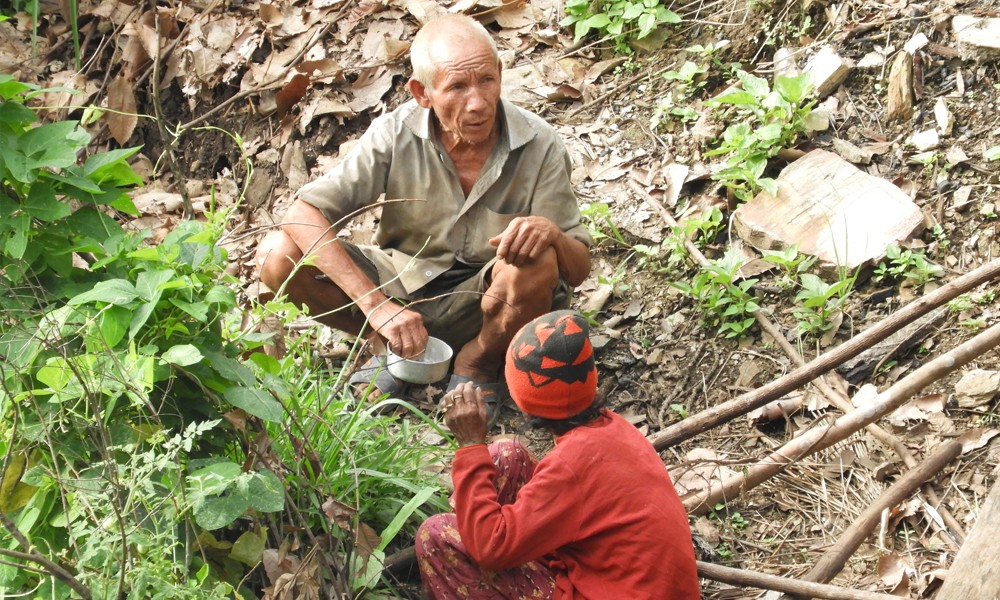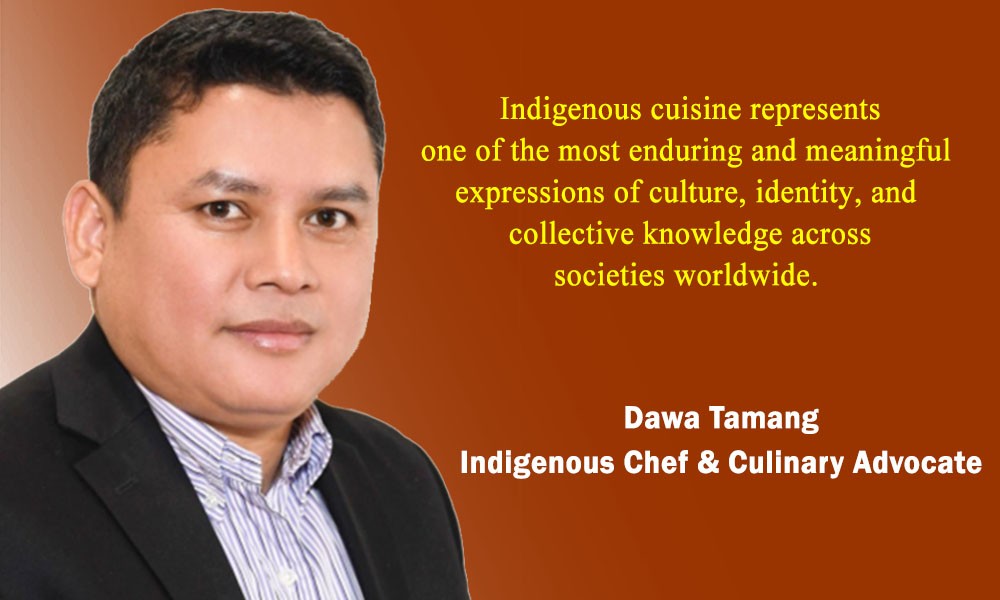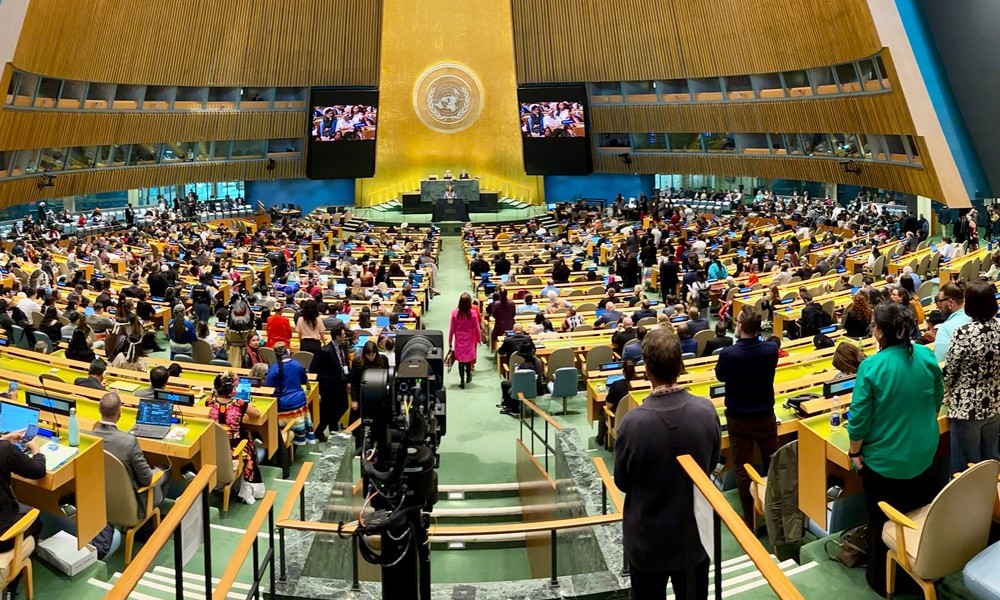Asia Indigenous Peoples Pact (AIPP), an umbrella organization of Indigenous Peoples Organizations in Asia and the International Work Group for Indigenous Affairs (IWGIA), Denmark based organization dedicated to work on the issues and rights Indigenous Peoples globally condemn the violent response to peaceful protests by the Indigenous Peoples Movement in Nepal. The protests so far caused at least 45 people injured and 1 life claimed in the clashes. Furthermore, 31 were arrested but have been released since. Some are facing criminal charges. Indigenous Peoples are peacefully protesting since the province no. 1 renamed as 'Koshi' province from March 2, 2022
Issuing the joint statement on May 24, 2023, they also called for the government to respect the fundamental democratic rights of people to assemble and protest peacefully without violent attacks by the State and called to stop immediately the police from violently intervening in the protests and engage in constructive dialogue instead. Furthermore, they also stated called government to drop the criminal charges filed against the protesters and engage in constructive dialogues with the Indigenous Peoples’ Movement to decide on a respectable name of the province and further the perpetrators of killings and violence to be held accountable through due process.
Setting the ground
Nepal is a land of various Indigenous Peoples. They have been practicing self-rule, self-governance, and autonomy in their ancestral lands for a long time before the advent of the present rulers in the 18th century. The establishment of the current "state" undermined and colonized the Indigenous Peoples as well as alienated them from their states, lands, and territories, and deprived them of exercising self-governance using ruthless force. The Indigenous Peoples have constantly since been struggling for their rights over lands and territories.
Indigenous Peoples of Nepal have been practicing self-rule, self-governance, and autonomy in their ancestral lands for a long time before the advent of the present rulers in the 18th century.
The formation of the constituent assembly in 2008 was a political event raising the expectations of the Indigenous Peoples to assert their rights. But the first constituent assembly could not write the Constitution and ended without accomplishing its task. The second Constitutional Assembly held in 2013 was not favorable of Indigenous and marginalized communities. Despite that, the Constitutional Assembly promulgated the Constitution in 2015 without substantive provision for ensuring Indigenous People’s rights. However, it did pronounce a few provisions relating to the rights of Indigenous Peoples' particularly relating to their political rights. For instance, Art 56 (5) provisioned for the formation of "special, protected and autonomous regions... for socio-cultural protection or economic development." But the then government and political parties ignored the provision, and no such political units have been structured.
Since the introduction of the federal structure in Nepal, the major political parties are against the recognition of Indigenous Peoples’ rights to their customary land and territories, which is now reflected in the naming of provinces. The provincial governments were given the authority to name the provinces under the 2015 Constitution. According to the Constitution, the provincial assembly must vote with a two-thirds majority to name a province (art. 295.2). The provincial governments designated the provinces ignoring Indigenous Peoples' reservations and ongoing protests. A recent instance is the naming of province No. 1. by the provincial parliament as "Koshi". The provincial parliament named the province without the consent of Indigenous Peoples although it is the homeland of various Indigenous Peoples.
Why is Koshi not an acceptable name?
The Indigenous Peoples are against the designation of province no. 1 altogether. This province includes 14 districts (divided by the current state) that merges the district of Limbuwan and Kirat. Limbuwan comprises nine districts east of the Arun River. Limbuwan is the historical customary land of the Limbu people. Throughout history, Limbuwan has been administered under the customary governance system of the Limbu people. The treaty between the Limbu and the current state in 1831 BS led to the assimilation of the Limbuwan into Nepal. After this treaty was done, other consecutive royal seals were issued by the Nepali state to other Indigenous Peoples such as Yakkha, Lohorung, Mewahang, Athapahariay, Yamphu, and Lepcha. Similarly, a royal seal was also issued to the Gobangi system of Himali, Indigenous Peoples from that area.
Historically the eastern part of Nepal is the land of various Indigenous Peoples.
Historically the eastern part of Nepal is the land of various Indigenous Peoples. The customary lands they own and govern are known by distinct names that reflect their culture, history, and so on. Pallo Kirat (far Kirat) or Libmwan, and Majh Kirat (Middle Kirat) are some of the recognized names. In the course of the formation of the current state structure, the state divided the lands of Indigenous Peoples and introduced a new structure and named the new districts reflecting the identity of the ruling caste groups. Present Province 1 includes the Limbuwan, Kirat, and other Indigenous Peoples such as Rai, Meche, Dhimal, Tajpuria, Ganagai, Santhal, Tharus and Sunuwar who have their customary lands in the current so-called "Koshi" province which ignores their identities, history, and land rights.
Although the political parties and caste groups in power claim it is the name of a river, it appears to have nothing to do with Nepal's geography or history. It is known historically as the territories of the Kiratas and Limbu, or Kirat and/or Limbuwan. Koshi is a Hindu clan name that takes its name from Kaushik rishi (a Saint). This imposition is neglecting the Indigenous Peoples' identity and history. Indigenous Peoples' Free, Prior, and Informed Consent was not obtained when the name of the province was decided. Instead, their legitimate opinions were suppressed and disregarded.
Peaceful agitation and suppression
Indigenous Peoples have been protesting peacefully in the province and in Kathmandu since the provincial parliament decided on the name of the province. The withdrawal of Koshi as the province's name is the major demand of the Indigenous Peoples in the province. The state is violently repressing the peaceful demonstrations of the Indigenous peoples. Mr. Padam Limbu (Lajehang) was killed during the violent suppression of a peaceful protest. He got injured on March 19, 2023, during a peaceful Indigenous Peoples' demonstration in Biratnagar, Province No. 1's capital, and died on March 24, 2023, while undergoing treatment at the B.P. Koirala Institute of Health Sciences, Sunsari Dharan. However, his dead corpse is still in the hospital because the Indigenous Peoples are refusing it unless the name of the province is dropped.
During the peaceful demonstrations, a total of at least 47 protesters suffered injuries.
During the peaceful demonstrations, a total of at least 47 protesters suffered injuries. For instance, in the peaceful protest on March 28 in Biratnagar at least 25 were injured when police opened teargas and gun fire. The protestors were discovered to have rubber bullet wounds to the forehead. Every nonviolent demonstration before and after this one has also been met with the same harsh governmental actions.
The most recent suppression happened on May 9, 2023, in Damak Jhapa. Police opened fire in a peaceful march and 9 people were injured. Two persons (including one woman) were seriously injured. One of them was brutally beaten when he fell after a bullet hit his knee. The Police confessed they opened fire. According to information from the protesters, electricity and phone networks were shot down before and after the police opened fire.
Concerns of Indigenous Peoples
Eastern Nepal's indigenous peoples are protesting peacefully to be heard by the government. The withdrawal of the province's name is now their top issue. Additionally, they are requesting that the province be given a name that honors the historical contributions of Indigenous Peoples and that acknowledges their culture and history.
For more information and press release visit : HERE
For any further inquiry contact:
- Ke Jung, AIPP: [email protected]
- Signe Leth, IWGIA: [email protected]


